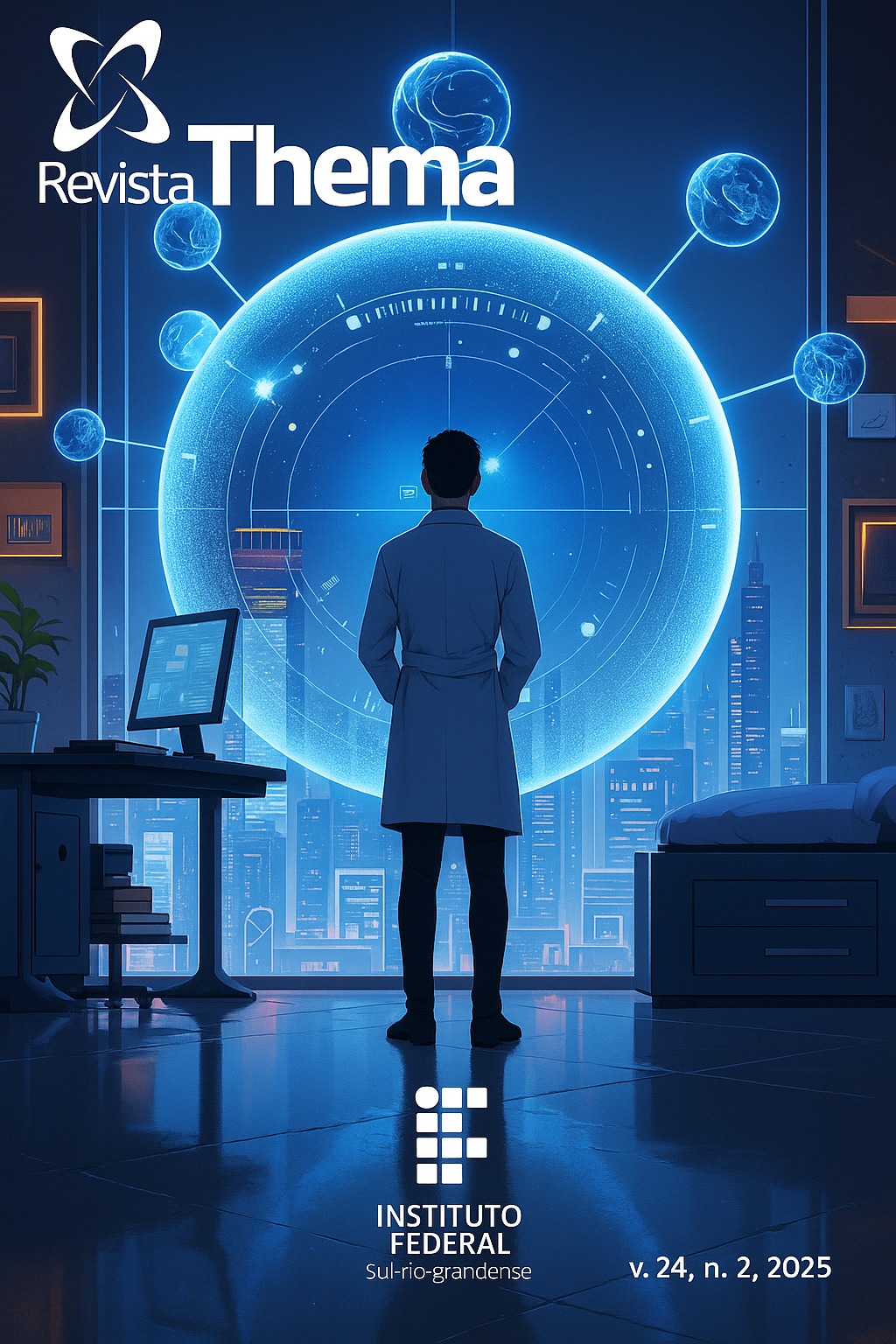Technological action in basic education as an incentive for female empowerment
DOI:
https://doi.org/10.15536/revistathema.24.2025.3956Keywords:
Women Empowerment, STEAM, TIC, Science DisseminationAbstract
Women have faced barriers and stereotypes, especially in careers related to Science, Technology, Engineering, Art and Mathematics (STEAM). Discussions about empowerment and promotion of female representation highlight spaces that lack diversity and need awareness for social transformation. This article deals about collaborative actions of teaching and extension projects at University Federal of Pelotas (UFPel), whose objective was to plan, propose, analyze and report a teaching proposal in Basic Education, through historical recovery and contributions in the Science by actress and inventor, Hedy Lamarr, whose invention gave rise to wi-fi and bluetooth. As a methodological strategy, the Three Pedagogical Moments were used in dialogued actions based on Technologies of Information and Communication (TIC) and in knowledge mediation. Participation in the proposed activity, receptivity and engagement were the result of how much the content covered influences the students' lives and daily lives. In this way, relevant discussions, which corroborate the Sustainable Development Goals (SDG 5) were provided, but they do not determine a how, but rather a possibility of integration, approach and critical discussion of the topic.
Downloads
Downloads
Published
How to Cite
Issue
Section
License
O autor responsável pela submissão representa todos os autores do trabalho e, ao enviar o artigo para a revista, está garantindo que tem a permissão de todos para fazê-lo. Da mesma forma, assegura que o artigo não viola direitos autorais e que não há plágio no trabalho. A revista não se responsabiliza pelas opiniões emitidas.
A Revista Thema é de acesso aberto (Open Access), sem que haja a necessidade de pagamentos de taxas, seja para submissão ou processamento dos artigos. A revista adota a definição da Budapest Open Access Initiative (BOAI), ou seja, os usuários possuem o direito de ler, baixar, copiar, distribuir, imprimir, buscar e fazer links diretos para os textos completos dos artigos nela publicados.
Todos os artigos são publicados com a licença Creative Commons Atribuição-NãoComercial 4.0 Internacional. Os autores mantém os direitos autorais sobre suas produções, devendo ser contatados diretamente se houver interesse em uso comercial dos trabalhos.





